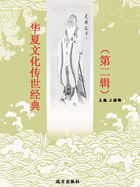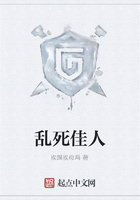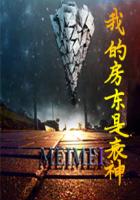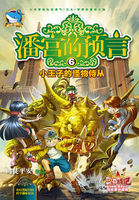And because they cannot always find all these things in themselves in the exact order and in the full power in which they are told of Christian in Bunyan's book, they begin to have doubts about themselves as to whether they are true pilgrims at all. But here is Faithful, with whom Christian held such sweet and confidential discourse, and yet he had come through not a single one of all these things. The two pilgrims had come from the same City of Destruction indeed, and they had met at the gate of Vanity and passed through Vanity Fair together, but, till they embraced one another again in the Celestial City, that was absolutely all the experience they had in common. Faithful had never had any such burden on his back as that was which had for so long crushed Christian to the earth. And the all but complete absence of such a burden may have helped to let Faithful get over the Slough of Despond dry shod. He had the good lot to escape Sinai also and the Hill Difficulty, and his passing by the House Beautiful and not making the acquaintance of Discretion and Prudence and Charity may have had something to do with the fact that one named Wanton had like to have done him such a mischief. His remarkable experiences, however, with Adam the First, with Moses, and then with the Man with holes in His hands, all that makes up a page in Faithful's autobiography we could ill have spared. His encounter with Shame also, and soon afterwards with Talkative, are classical passages in his so individual history. Altogether, it would be almost impossible for us to imagine two pilgrims talking so heartily together, and yet so completely unlike one another. A very important lesson surely as to how we should abstain from measuring other men by ourselves, as well as ourselves by other men; an excellent lesson also as to how we should learn to allow for all possible varieties among good men, both in their opinions, their experiences, and their attainments. True Puritan as the author of The Pilgrim's Progress is, he is no Procrustes. He does not cut down all his pilgrims to one size, nor does he clip them all into one pattern. They are all thinking men, but they are not all men of one way of thinking. John Bunyan is as fresh as Nature herself, and as free and full as Holy Scripture herself in the variety, in the individuality, and even in the idiosyncrasy of his spiritual portrait gallery.
Vanity Fair is one of John Bunyan's universally-admitted masterpieces. The very name of the fair is one of his happiest strokes. Thackeray's famous book owes half its popularity to the happy name he borrowed from John Bunyan. Thackeray's author's heart must have leaped in his bosom when Vanity Fair struck him as a title for his great satire. 'Then I saw in my dream that when they were got out of the wilderness they presently saw a town before them, and the name of that town is Vanity, and at that town there is a fair kept called Vanity Fair. The fair is kept all the year long, and it beareth the name of Vanity Fair, because the town where it is kept is lighter than Vanity. And, also, because all that is sold there is vanity. As is the saying of the wise, All that cometh is vanity. The fair is no new erected business, but a thing of ancient standing: I will show you the original of it.
About five thousand years ago there were pilgrims walking to the Celestial City, as these two honest persons now are, and Beelzebub, Apollyon, and Legion, with their companions, perceiving that by the path that the pilgrims made, that their way to the city lay through this town of Vanity, they contrived there to set up a fair: a fair wherein should be sold all sorts of vanity, and that it should last all the year long. Therefore at this fair are all such merchandise sold as houses, lands, trades, places, honours, preferments, titles, countries, kingdoms, pleasures, and delights of all sorts, as wives, husbands, children, masters, servants, lives, blood, bodies, souls, silver, gold, precious stones, and what not. And, moreover, at this fair at all times there is to be seen juggling, cheats, games, plays, fools, apes, knaves, and rogues, and that of every kind.' And then our author goes on to tell us the names of the various streets and rows where such and such wares are vended.
And from that again he goes on to tell how the Prince of princes Himself went at one time through this same fair, and that upon a fair day too, and how the lord of the fair himself came and took Him from street to street to try to get Him induced to cheapen and buy some of the vain merchandise. But as it turned out He had no mind to the merchandise in question, and He therefore passed through the town without laying out so much as one farthing upon its vanities. The fair, therefore, you will see, is of long standing and a very great fair. Now, our two pilgrims had heard of all that, they remembered also what Evangelist had told them about the fair, and so they buttoned up their pockets and pushed through the booths in the hope of getting out at the upper gate before any one had time to speak to them. But that was not possible, for they were soon set upon by the men of the fair, who cried after them:
'Hail, strangers, look here, what will you buy?' 'We buy the truth only,' said Faithful, 'and we do not see any of that article of merchandise set out on any of your stalls.' And from that began a hubbub that ended in a riot, and the riot in the apprehension and shutting up in a public cage of the two innocent pilgrims. Lord Hate-good was the judge on the bench of Vanity in the day of their trial, and the three witnesses who appeared in the witness-box against the two prisoners were Envy, Superstition, and Pickthank.
The twelve jurymen who sat on their case were Mr. Blindman, Mr. No-
good, Mr. Malice, Mr. Love-lust, Mr. Live-loose, Mr. Heady, Mr.















